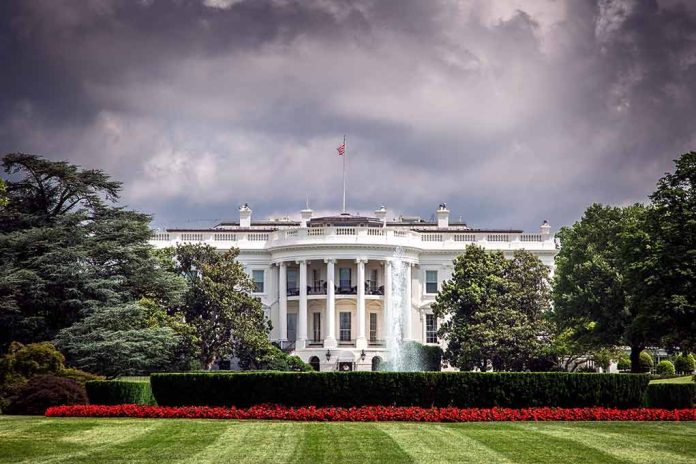
The Trump administration targets the financial backbone of the Sinaloa Cartel with sweeping sanctions against thirteen individuals and organizations involved in money laundering operations.
Key Takeaways
- The US Treasury Department sanctioned six individuals and seven companies for laundering money for the Sinaloa Cartel, freezing their assets and barring US entities from doing business with them.
- The Sinaloa Cartel has been designated as a foreign terrorist organization under the Trump administration, giving authorities additional tools to combat their operations.
- The financial network used front companies, shell corporations, and currency exchange businesses to funnel drug profits back to the cartel.
- This action is part of a coordinated investigation involving both the US and Mexican government agencies targeting the cartel’s financial operations.
- The Sinaloa Cartel is responsible for a significant portion of fentanyl and other drugs trafficked into the United States.
Treasury Department Strikes at Cartel’s Financial Network
The Trump administration has escalated its fight against the Sinaloa Cartel by imposing targeted sanctions on thirteen entities involved in laundering drug money. The US Treasury Department’s Office of Foreign Assets Control (OFAC) specifically designated six individuals and seven companies that formed a sophisticated money laundering network supporting the cartel’s drug trafficking operations. These sanctions effectively freeze all US-based assets of the designated parties and prohibit Americans from conducting business with them.
Treasury Secretary Scott Bessent emphasized the importance of disrupting the cartel’s financial operations, stating, “Laundered drug money is the lifeblood of the Sinaloa Cartel’s narco-terrorist enterprise, only made possible through trusted financial facilitators like those we have designated today.” The network employed various methods to move money, including front companies, shell corporations, and currency exchange businesses that conducted bulk cash pickups to convert drug profits into legitimate-appearing funds.
Terrorist Designation Expands Enforcement Tools
The sanctions come as part of a broader strategy that includes the Sinaloa Cartel’s designation as a foreign terrorist organization under the Trump administration. This designation provides federal authorities with expanded tools to combat the cartel’s operations, though officials note it does not significantly increase the US government’s ability to take military action in Mexico. The move represents a significant shift in how the government approaches drug cartels, treating them more as national security threats than purely criminal enterprises.
The sanctioned individuals include Enrique Dann Esparragoza Rosas, Alan Viramontes Sesteaga, Salvador Diaz Rodriguez, Israel Daniel Paez Vargas, Alberto David Benguiat Jimenez, and Christian Noe Amador Valenzuela. Companies targeted include Tapgas Mexico S.A. de C.V. and several other front companies that facilitated the cartel’s money laundering operations. According to Treasury officials, these entities played critical roles in converting drug profits into usable funds for the cartel’s ongoing operations.
Coordinated Approach to Combating Cartel Operations
The sanctions are part of a coordinated investigation by multiple US and Mexican government agencies. OFAC has previously sanctioned over 600 individuals and companies linked to the Sinaloa Cartel under various authorities, including the Kingpin Act and Executive Order 14059. The Financial Crimes Enforcement Network (FinCEN) also issued an alert to financial institutions about bulk cash smuggling tactics used by Mexico-based criminal organizations, encouraging vigilance and compliance with anti-money laundering regulations.
The Sinaloa Cartel has evolved beyond drug trafficking to diversify its revenue streams, including involvement in avocado production and migrant smuggling. The State Department has described it as one of the world’s most powerful drug cartels and a major producer and trafficker of fentanyl, which has fueled the deadly opioid crisis across America. These sanctions aim not only to punish the cartel and its facilitators but to bring about behavioral change by cutting off access to the US financial system that enables their operations.
Sources:
- US sanctions Sinaloa Cartel associates for alleged money laundering
- Treasury Sanctions Criminal Operators and Money Launderers for the Notorious Sinaloa Cartel
- Trump’s Treasury Dept Launches Sanctions Targeting Sinaloa Cartel




